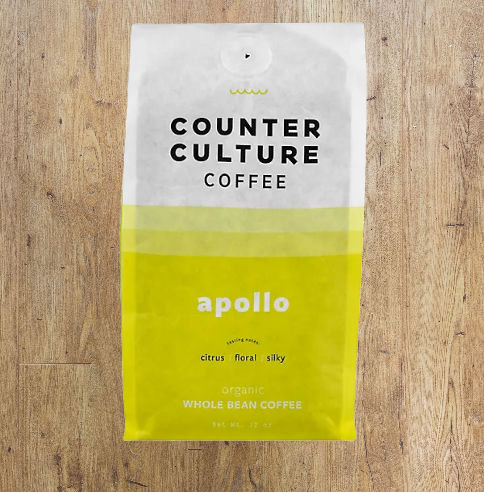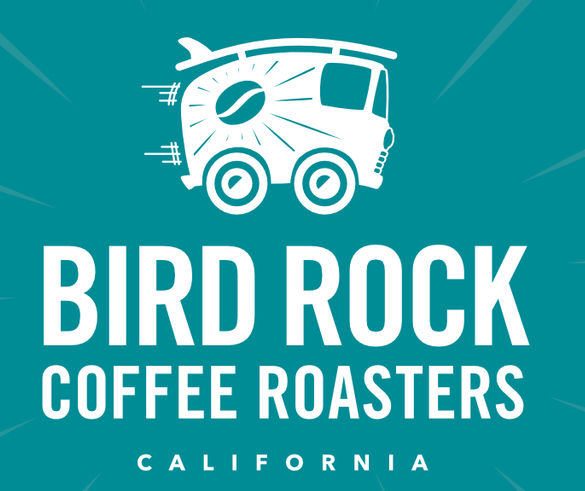The Daily Grind: Your Guide to North America's Best Independent Coffee Roasters
- Ian
- Sep 2, 2025
- 9 min read
Updated: Sep 18, 2025

"Life is too short to drink bad wine" is a well-known expression, but its precise origin is unclear, although it is often misattributed to Goethe. The sentiment is clear though. Don't waste your precious time and money on inferior products (like everything from Temu!). I strongly believe that philosophy applies equally to coffee having had more than my fair share of horribly burnt/despicably weak/alarmingly acrid etc. cups of the brew.
I am not a fan of Starbucks, for example. People like it because they say it is consistent. Sure it is, but consistently bad is not a good selling point. I can stomach their latte and am able to get through a cup of their Verona roast but other than that? No, thank you. I will always have a soft spot in my heart for double double at Tim Horton's but that is largely just nostalgia.
As I've aged I have made the decision that I will not drink bad coffee ever again. Why should I when there are so many lovely independent roasters that I can frequent instead? North America's specialty coffee scene has exploded over the past two decades, with passionate roasters across the continent elevating coffee from a simple caffeine fix to an artisanal craft. These independent roasters champion direct relationships with farmers, innovative roasting techniques, and an unwavering commitment to quality that puts them in a league of their own.
From the Pacific Northwest's light-roasted perfection to Quebec's French-influenced micro-roasteries, here are 12 outstanding independent coffee roasters that every coffee enthusiast should know about and hopefully visit one day. Perk up, something is brewing!
Best Coffee Roasters, at least for me!

Founded: 2012
Known for: Fruit-forward profiles, unparalleled transparency, competition-winning baristas
Onyx Coffee Lab has become nothing short of a phenomenon in specialty coffee. Located in Northwest Arkansas, this roastery has earned the #1 Coffee Shop in North America designation for 2025 and consistently ranks among the world's best specialty coffee roasters.
What sets Onyx apart is their radical transparency. Every coffee comes with a detailed transparency report showing exactly what farmers were paid, processing methods, and even cupping scores. Their rebuilt vintage Diedrich roasters produce coffees that regularly score 90+ points, with a particular expertise in highlighting bright, fruity Ethiopian and Central American beans.
The company has become a breeding ground for coffee champions—their baristas consistently place in national competitions, with names like Morgan Eckroth and Lance Henrick becoming celebrities in the coffee world. Their educational approach and meticulous documentation of every roast make them a must-follow for anyone serious about coffee.
Specialty: Light to medium roasts that showcase origin characteristics, particularly excelling with natural process Ethiopian coffees and experimental fermentations.

Founded: 1995
Known for: Sustainability leadership, education programs, employee ownership
Counter Culture Coffee remains one of the few major independent roasters that's employee-owned, giving them complete freedom to pursue their mission-driven approach. Founded in Durham, this North Carolina roastery has spent three decades building the infrastructure for sustainable coffee.
Their Direct Trade program goes beyond fair prices—they work directly with farmers to improve agricultural practices, provide technical assistance, and build long-term partnerships. Counter Culture operates their own training centers and has trained thousands of baristas across the country through their comprehensive education programs.
The roastery specializes in highlighting the distinct characteristics of different coffee regions, from bright Ethiopian florals to rich Guatemalan chocolates. Their commitment to environmental responsibility extends to their operations, using renewable energy and implementing comprehensive recycling programs.
Specialty: Single-origin coffees that showcase regional terroir, with particular expertise in Central American and East African beans.
3. George Howell Coffee - Boston, Massachusetts

Founded: 2004 (after selling The Coffee Connection to Starbucks in 1994)
Known for: Industry pioneer, Cup of Excellence co-founder, vintage wine approach
George Howell is a living legend in specialty coffee. After founding The Coffee Connection and selling it to Starbucks, Howell returned to coffee with an even deeper commitment to quality and innovation. He co-founded the Cup of Excellence program, which has become the gold standard for identifying exceptional coffees worldwide.
Howell's approach treats coffee harvests like wine vintages, celebrating the unique characteristics of each crop year. His Boston flagship cafe serves as both retail space and educational laboratory, where coffee is approached with the seriousness of fine wine.
The roastery focuses on micro-lots and exceptional coffees that might be overlooked by larger operations. Howell's nearly five decades in coffee have created a network of relationships with the world's best growers, allowing him to secure truly unique lots.
Specialty: Rare micro-lots and exceptional single-origin coffees, often featuring unique varieties and processing methods.

4. Ritual Coffee Roasters - San Francisco, California

Founded: 2005
Known for: West Coast light roasting pioneer, woman-owned, direct trade since 2007
Ritual Coffee Roasters helped define what's become known as "West Coast style" light roasting, emphasizing bright acidity and clean flavors that showcase the coffee's origin. As a fully independent, woman-owned company, they've maintained their founding principles while growing into one of California's most respected roasters.
They were early adopters of direct trade relationships, visiting farms since 2007 when they were just a single cafe operation. This commitment to building relationships with growers has allowed them to secure some of the most sought-after lots from Central and South America.
Ritual's approach emphasizes the coffee's natural characteristics rather than imposing roaster preferences. Their light roasting philosophy has influenced countless roasters across the country and helped establish California as a major force in specialty coffee.
Specialty: Bright, clean light roasts that highlight natural fruit flavors, particularly excelling with washed Central American coffees.
5. JBC Coffee Roasters - Madison, Wisconsin

Founded: 2004
Known for: Five-time Good Food Award winner, 50% women-owned, Midwest hospitality
JBC Coffee Roasters embodies the best of Midwest coffee culture, combining exceptional quality with genuine hospitality. This 50% women-owned business has won the Good Food Award five times and earned recognition from Forbes and Coffee Review.
Their approach blends passion for exceptional coffee with Midwest values, creating a seed-to-cup experience that values every contributor in the coffee chain. They source sustainable coffees directly from producers and like-minded brokers, ensuring both economic and environmental equilibrium.
JBC has competed in various coffee championships and consistently produces coffees that impress both critics and casual drinkers. Their commitment to sustainability extends beyond sourcing to encompass all aspects of their operation.
Specialty: Well-balanced coffees that appeal to both newcomers and coffee experts, with expertise in both light and medium roast profiles.
6. Heart Coffee Roasters - Portland, Oregon

Founded: 2009 by Wille and Rebekah Yli-Luoma
Known for: Fruit-forward coffees, no WiFi policy, precision espresso
Heart Coffee Roasters opened with a simple but powerful idea: great coffee should highlight the distinct fruit flavors naturally found in coffee beans. Their Portland locations have become destinations for coffee pilgrims, featuring vintage black Probat roasters and an aesthetic that would make Scandinavians proud.
The roastery is built around showcasing natural fruit characteristics, often achieving bright, clean profiles that taste more like tea or fruit juice than traditional coffee. Their "no WiFi" policy creates an intentionally unplugged environment that encourages genuine conversation and community.
Heart's precision-focused approach extends to every aspect of their operation, from their relationships with growers to their carefully calibrated brewing methods. Their baristas are trained to treat each coffee as a unique expression of its origin and processing.
Specialty: Exceptionally clean, fruit-forward light roasts, particularly natural process coffees that showcase berry and stone fruit notes.
7. Bird Rock Coffee Roasters - San Diego, California

Founded: 2002, opened first retail location 2006
Known for: Micro Roaster of the Year 2012, sustainability leadership, direct trade
Bird Rock Coffee Roasters has become synonymous with San Diego coffee culture. Founded by Chuck Patton and named after the La Jolla neighborhood where they started, they've grown from farmers market vendors to one of California's most respected roasting operations.
Their commitment to sustainability goes beyond fair prices—they actively work with farms to improve both coffee quality and farmers' quality of life. This proactive approach has helped them secure some of the highest-scoring coffees in the country, with over 25 coffees rating 90+ points on Coffee Review's 100-point scale.
The roastery won Micro Roaster of the Year in 2012 and has continued to expand throughout Southern California while maintaining their direct trade relationships. Their multiple San Diego locations each have distinct personalities while maintaining consistent quality standards.
Specialty: High-scoring single-origin coffees with excellent consistency, particularly strong with Central and South American beans.
8. Café Saint-Henri Micro-Torréfacteur - Montreal, Quebec

Founded: 2010
Known for: Direct trade excellence, pesticide-free sourcing, French café culture
This Montreal-based micro-roastery brings French sophistication to North American coffee culture. Saint-Henri's commitment to ethical sourcing includes buying directly from farms that use pesticide-free and chemical fertilizer-free agriculture.
Their approach to roasting emphasizes precision and showcases distinctive flavor profiles from each origin. The name "Micro-Torréfacteur" (micro-roastery in French) reflects their small-batch approach and attention to detail that allows them to highlight the unique characteristics of each coffee lot.
Saint-Henri represents the best of Quebec's emerging coffee scene, combining European café traditions with North American innovation. Their coffees regularly feature unique processing methods and rare varieties that showcase their relationships with progressive farmers.
Specialty: Unique processing methods and rare varieties, with particular expertise in white honey and natural process coffees from Central America.
9. Little Victories Coffee Roasters - Ottawa, Ontario

Founded: 2014
Known for: Community focus, ethical sourcing, owner-operated quality control
Little Victories embodies the philosophy that building relationships throughout the coffee community benefits everyone involved. This Ottawa-based roastery is owned and operated by a duo—one coffee roaster and one barista—ensuring hands-on quality control at every stage.
Their approach emphasizes finding "little victories" in daily life, starting with an exceptional cup of coffee. They focus on ethical sourcing and building lasting relationships with growers, importers, and their local community.
The roastery has gained recognition as one of Ottawa's—and arguably Canada's—best coffee roasters. Their Ethiopian coffees, particularly natural process beans like their Ethiopia Asefa Beraso, have become local favorites that showcase their skill with fruit-forward profiles.
Specialty: Ethiopian coffees, particularly natural process beans that highlight bright fruit and floral characteristics.
10. Dark Horse Coffee Roasters - Toronto, Ontario

Founded: 2009
Known for: "Staying rad" philosophy, close farmer relationships, community focus
Dark Horse sets itself apart through extremely close relationships with smallholder farms and their infectious "staying rad" philosophy. This Toronto-based roaster believes that everyone in the coffee chain—from farmers to wholesale partners to coffee drinkers—deserves recognition and fair treatment.
Their direct-trade model goes beyond transactions to build genuine friendships with growers. These relationships allow them to secure exceptional coffees while ensuring farmers receive premium prices for their work.
The "staying rad" ethos permeates everything they do, from their approachable branding to their commitment to making high-quality coffee accessible. They've become a cornerstone of Toronto's specialty coffee scene while maintaining their grassroots values.
Specialty: Relationship-driven sourcing that produces well-balanced, approachable coffees perfect for both espresso and filter brewing.
11. Prototype Coffee - Vancouver, British Columbia

Founded: 2017 by Matt Johnson
Known for: Innovative microroastery approach, waffle donuts, transparent roasting system
Prototype Coffee represents the cutting edge of Vancouver's specialty coffee scene. Founded by Matt Johnson, a former Revolver Coffee manager who had been home-roasting since 2006, Prototype started as a part-time venture with a single Aillio Bullet R1 roaster and has evolved into one of Vancouver's most innovative coffee destinations.
What makes Prototype truly unique is their transparent roasting system—four small Aillio Bullet roasters operate right behind the counter in their Strathcona location, allowing customers to watch the entire roasting process. This lean production system lets them offer over 15 different coffees at any time without waste, roasting small batches to order for maximum freshness.
Johnson's philosophy centers on unlocking the potential in each coffee bean through curiosity and careful listening. Their omni-roast approach means the same roast works perfectly for both espresso and filter brewing, typically landing in the light-to-medium range with a focus on maximizing balance between sweet, sour, and bitter elements.
The roastery has gained recognition for innovation beyond coffee—their waffle donuts, created during the pandemic, have become a Vancouver sensation. These made-from-scratch creations use seasonal local ingredients and are cooked fresh on waffle irons at the bar.
Specialty: Light-to-medium omni-roasts that maximize balance and sweetness, with exceptional transparency in both sourcing and production processes.
12. Barrington Coffee Roasting Company - Lee, Massachusetts

Founded: 1993
Known for: Three decades of consistency, obsessive dedication, small-batch focus
As one of the older independent roasters on this list, Barrington Coffee Roasting Company has had three decades to perfect their craft. What started as one founder's college obsession with roasting has evolved into a company that describes its relationship with coffee as "devotion, commitment, and fanaticism."
This Massachusetts roastery has weathered the evolution of specialty coffee while maintaining their commitment to small-batch roasting and quality sourcing. Their longevity speaks to both their consistency and ability to adapt while staying true to their founding principles.
Barrington's experience shows in their ability to work with a wide range of coffee origins and processing methods. Their deep relationships with suppliers and understanding of coffee seasonality allow them to maintain quality year-round.
Specialty: Consistent, well-developed roasts across a range of origins, with particular strength in creating balanced blends and single-origins that work well for multiple brewing methods.
The Independent Advantage

These 12 roasters represent some of the best of what independence brings to coffee: the freedom to prioritize quality over profit margins, to build meaningful relationships with growers, and to innovate without corporate constraints. Each has found success by staying true to their vision while adapting to the evolving specialty coffee landscape.
The next time you're looking to grab yourself a cup of joe, or that latte, take a moment to consider skipping the chains and visiting a local independent roaster instead. It could be one of these, but more likely it will be one you may have seen in your neighborhood. Do your local economy (and your taste buds!) a favor and give them a chance to serve your daily pick me up.





Comments